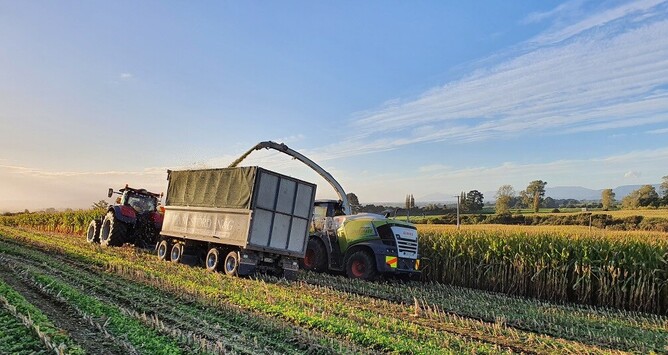Farmers looking for better results from their annual crops now have a new option as the annual planting season nears.
Blue Pacific Minerals launched PermaGreen in July, a nutrient management system which has a natural zeolite core loaded with urea. The material is applied to the soil before crops are planted. The zeolite crystal retains the urea but then slowly releases it once in the ground, ready for plants to uptake.
PermaGreen aims to increase soil productivity, improve nitrogen efficiency and in the end, profit per hectare. It has the ability to retain cation nutrients in the soil, reducing nitrogen losses to the air and water.
Zeolite can also absorb excess moisture in the soil and retain it, reducing crop stress.
Dave Hill has been leading the research and development of PermaGreen for the company and said a successful series of broadacre trials in 2020 provided the confidence to take the product to the market for commercial growers. “We selected soils we thought would suit the functionality of this material which tend to be those that are prone to leaching nitrogen.” There were two properties in Matamata, one in South Waikato and one in Cambridge where trial crops were planted into PermaGreen plots for the 2020 growing season. “We chose maize because it’s really a large-scale crop hungry for nitrogen to grow and we know there is pressure on farmers now to reduce nitrogen use.”
Those who took part in the trial included contractors who lease ground to grow their own maize and trade it, as well as dairy farmers growing their own supplements.
Hill said across the trial paddocks, PermaGreen gained on average a 20 per cent increase in dry matter yield, which was better than the 8-15 per cent initially forecast.
“The key is the formal attachment of the zeolite and urea – and having this high cation exchange of the zeolite immediately available when ammonium is delivered by urease activity.
“If nitrogen is not taken up by the plant in a reasonably short amount of time it may disappear as ammonia gas or leach in the form of nitrate. “The concept we have here is that the zeolite is very hungry for ammonia/ammonium, so as the urea breaks down the zeolite grabs the ammoniacal nitrogen and holds on to it. Hill said zeolite’s ability to retain both moisture and nitrogen compounds in the soil was a major benefit to farming. “We believe adding zeolite and urea together before planting give you the best opportunity of wrapping that effect up so you minimise those losses.”
Hill said Blue Pacific Minerals was happy to share the results of the trial with any growers keen to use PermaGreen for this or future planting seasons. “We’ve now got a bit of a benchmark on previous years where we had used zeolite on its own. “Delivering the product with urea infused now gives us a new set of data that we can add to in the coming years.”
Hill said international scientific research also showed the benefits of zeolite and urea used in combination in growing crops. “That has also given us the confidence to continue to make this product more effective and efficient for farmers to use, to grow their crops. “We will be running further science-based trials this year and that stronger data will also be available for people to view in about April or May 2022.”
Hill said PermaGreen has the potential to help farmers meet their obligations when it comes to reducing nitrogen use on the land. “New Zealand is still going through the process of determining what the level of nitrogen use could be per hectare but we have seen in parts of the country, such as in Canterbury, where a nitrogen cap to cropping has been applied. “In the Waikato, there are recommendations but not a mandate for a cap yet but as time goes forward nitrogen use in likely to become a sinking-lid process, in our view. “I would say most farmers are looking to the future, how they must manage their nitrogen and fertiliser regime, trying to find better ways to improve efficiency and to stay ahead of the game. “PermaGreen allows farmers to take that view.”
Blue Pacific Minerals Agriculture Sales and Portfolio Manager Mike Prendergast agreed and said right now farmers will be looking at the results of their soil tests to determine how much fertiliser they’ll need before crops go in the ground in October and November. “We’re willing to work with growers and farmers to show them how PermaGreen can play a role in growing better crops and reducing losses.” Mike said the company was offering a performance guarantee so customers had a high level of confidence that PermaGreen will live up to expectations. Building up the soil profile with PermaGreen over successive growing seasons offered some long-term benefits too. “We know that the zeolite component of PermaGreen will remain in the root zone of the soil indefinitely. “So a steady build up of the material over many seasons will also build up the capital value of the soil profile.”
Mike said farmers are being challenged to grow more food using the same level or even less fertiliser to reduce their environmental impact. “It’s something that aligns with BPM’s values to reduce environmental impact whilst being sustainable and producing food to feed the world.”

